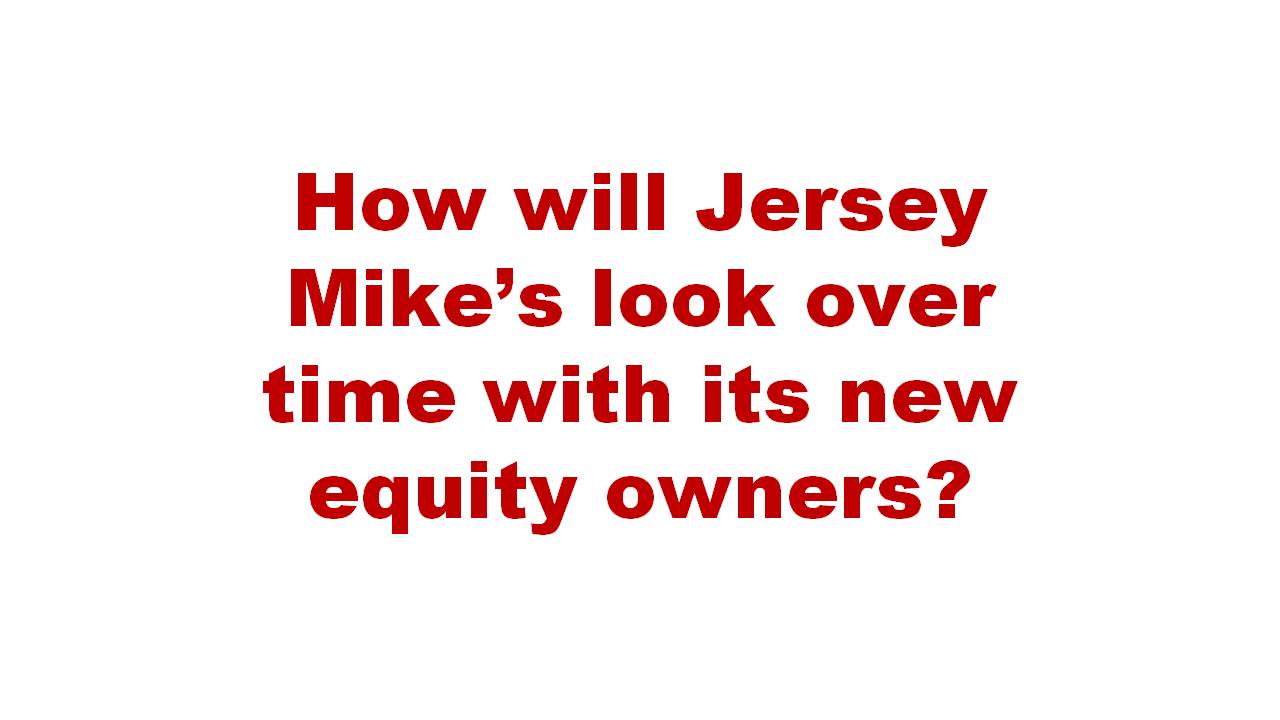by Peter A. Arthur-Smith
“We’re not a chain. We’re a mom-and-pop shop in every town,” Was a Pete Cancro quote from 2023; as reported in Wall Street Journal article, November 2024, entitled, ‘The Boss at Jersey Mike’s is Pete: Now He’s Rich’ by Heather Haddon and Lauren Thomas.

Jersey Mike’s first came to my attention about 6-7 years ago before the pandemic through regular TV advertizing in the greater New York City area. It particularly caught my attention throughout the pandemic, because it regularly brought to viewers’ attention its voluntary efforts to supplement weekly food banks for people with food shortages. All Cancro’s shops across the country were being encouraged to do the same.
Without seeking any glamour or fanfare, Pete Cancro was clearly trying to fulfill an immediate societal need. People were clearly important to him. His genuine focus on supporting people in need in so many towns and cities, through his owned shops and those of franchise owners was, for him, a perfectly natural business marketing activity.
Through the above article, I now had the chance to learn about his success story, where he started out buying the sandwich shop, Mike’s Sales, on the New Jersey shore in 1975 for $125,000. That’s where he worked his summers until then. He was 17 at the time of purchase, when his Mom helped him put the money together from savings, friends and well-wishers. At the time he was already signed up for college, although he pursued his sandwich shop investment instead.
At some point, he changed the shop’s name to Jersey Mike’s and called upon his experience as football team captain and class President to lead his venture. He created a number of memorable sandwich options – by designating them with poignant numbers – and started franchising in 1987. Hence he had a clear business and marketing strategy, and started franchising with a formula that wasn’t as expensive as so many other chains. For long enough he was well behind other franchisers like Subway and Jimmy Johns in terms of outlet numbers. His wife and daughter worked tirelessly to help build Jersey Mike’s, while he apparently put in 100 hour weeks.
He had some close calls along the way that coincided with the ups and downs of the USA economy, although was always open to others for business advice. This included one mentor, Tom Monaghan founder of Domino’s Pizza, who also had some liquidity scrapes along the way. Even so, he called upon his sporting mindset of earlier days, because it encouraged teamwork and inspiration in all his shops, which now totaled 2,680 locations in 2023. The pandemic aftermath brought a 25% growth over 2022. He had surpassed Subway and Jimmy Johns.
Apparently in 2006, when his business hit a downturn, he did something unusual for a franchisor; he paid for renovations of his North Carolina stores. He also did it again when the pandemic hit and he invested $150M on store upgrades across his network. He invested generously rather than pay homage to the numbers.
All of his effort and smart moves eventually paid off handsomely this year, when the Blackstone Equity Group bought Jersey Mike’s for $8Billion. He apparently retained a 10% stake. Most of the money will go his way as the sole stockholder. Since he loves the business and is a master meat slicer, he will continue to lead the way…for now.
The caveat to watch with Blackstone’s equity business model and philosophy is what impact its ownership with have on Jersey Mike’s future growth. It’s bound to invoke efficiencies to help pay for the purchase. Will that include paring out more marginal franchisees and, if so, impact morale across a highly inspired growth organization? Will it also impact ingredient suppliers, where Blackstone will possibly demand stricter pedigrees, credentials and purchasing guidelines? Will it also become even more of a slave to government bureaucratic pressures because it will not be able to operate under the government radar in quite the same way? How will this all sit over time with the more entrepreneurial mindset of Pete Cancro?
It’s somewhat reminiscent of former dynamic grocery chain, Whole Foods, which was acquired by Amazon a few years back. Before that moment, people were much at the center of its business; especially the personalized service one received at check-out and in-store counter service at store delis and other areas. There was a certain customer elegance about it. There were often huge, fast moving lines which you can still find in bustling Trader Joes today. Within months those check-out people at Whole Foods were all gone, to pay for the acquisition, and it lost its people-service-charm. It’s now pretty much the same faceless chain that befits so many other chains that have come under efficiency scrutiny by equity investor firms. The customer lines have dwindled to a shadow of their former glory.
Gone are all in-store roles at Whole Foods where so many regular folks earned a living and enjoyed the camaraderie of helping customers on a daily basis. Relative newcomer Wegman’s enjoys the same people-oriented grocery atmosphere. Jersey Mike’s has clearly had that customer-oriented esprit-de-corps for long enough, too. Such customer favored ventures are a great investment catch for equity firms, but efficiency cut-backs are a tremendous loss for the public and society at large. It’s a financial gimmick that makes those investors wealthy enough that they don’t have to experience that personalized loss on a daily basis. Who’s going to call it all out?
